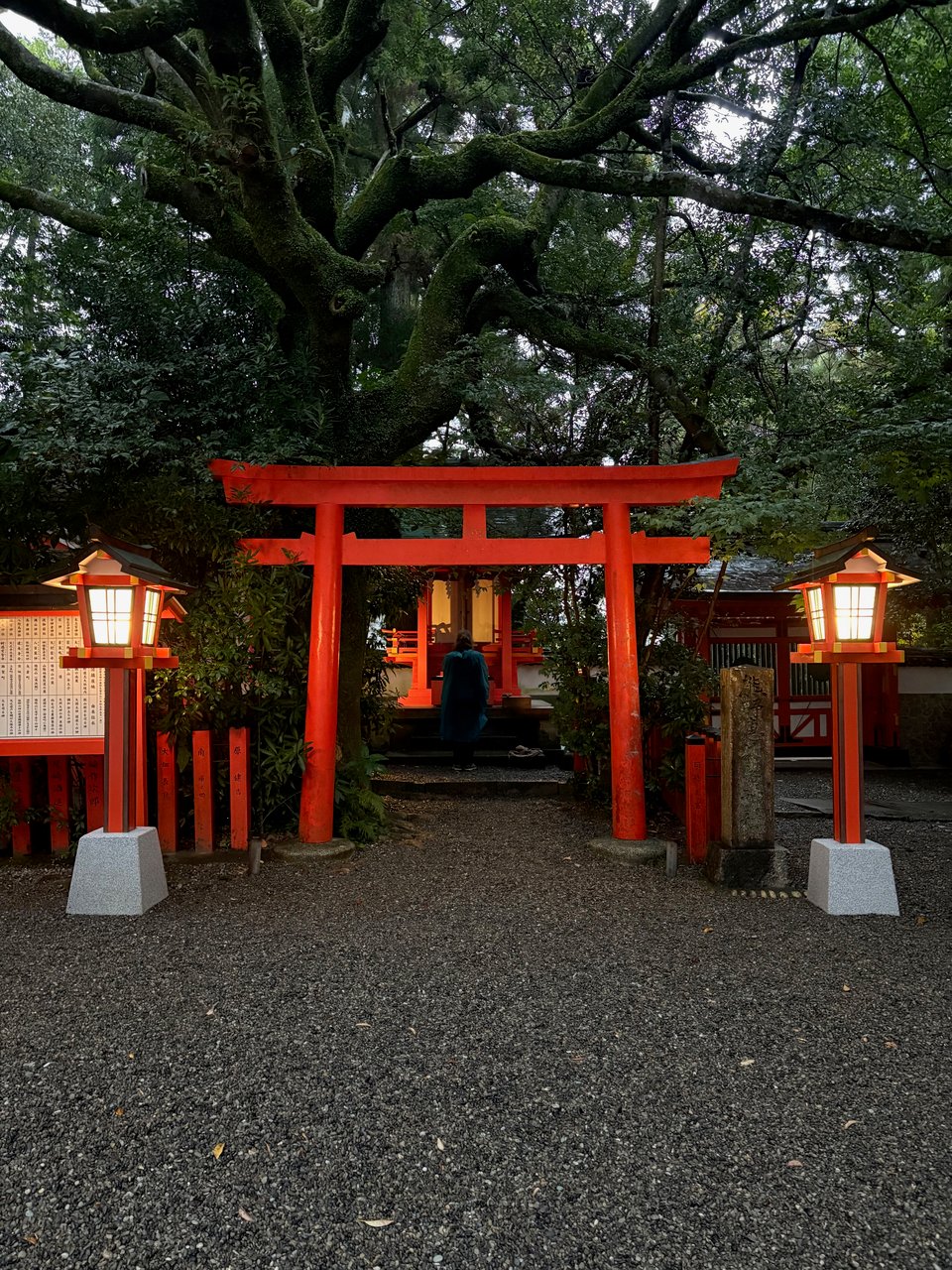Ise Does It - Day + 3
Ise Does It would have been a very different journey without my walking buddy, Kalia. When she expressed a desire to share her take on the walk with you all, the answer was obvious.
So, over to Kalia:
I surprised myself a few days before the end of our walk by asking Drew if I could write something as well. An unexpected delight has been watching desires, questions — and every once in a while an answer or two — arise from somewhere deep in my system, unmediated by my head.
When we discussed this trip last month, I had mentioned how grateful I was to go with someone who was happy to document and photograph so I could just let myself be carried along by the journey. It’s been fascinating to experience an entire day of not-always-easily categorizable moments, and then watch it get tidily summarized into a coherent story.
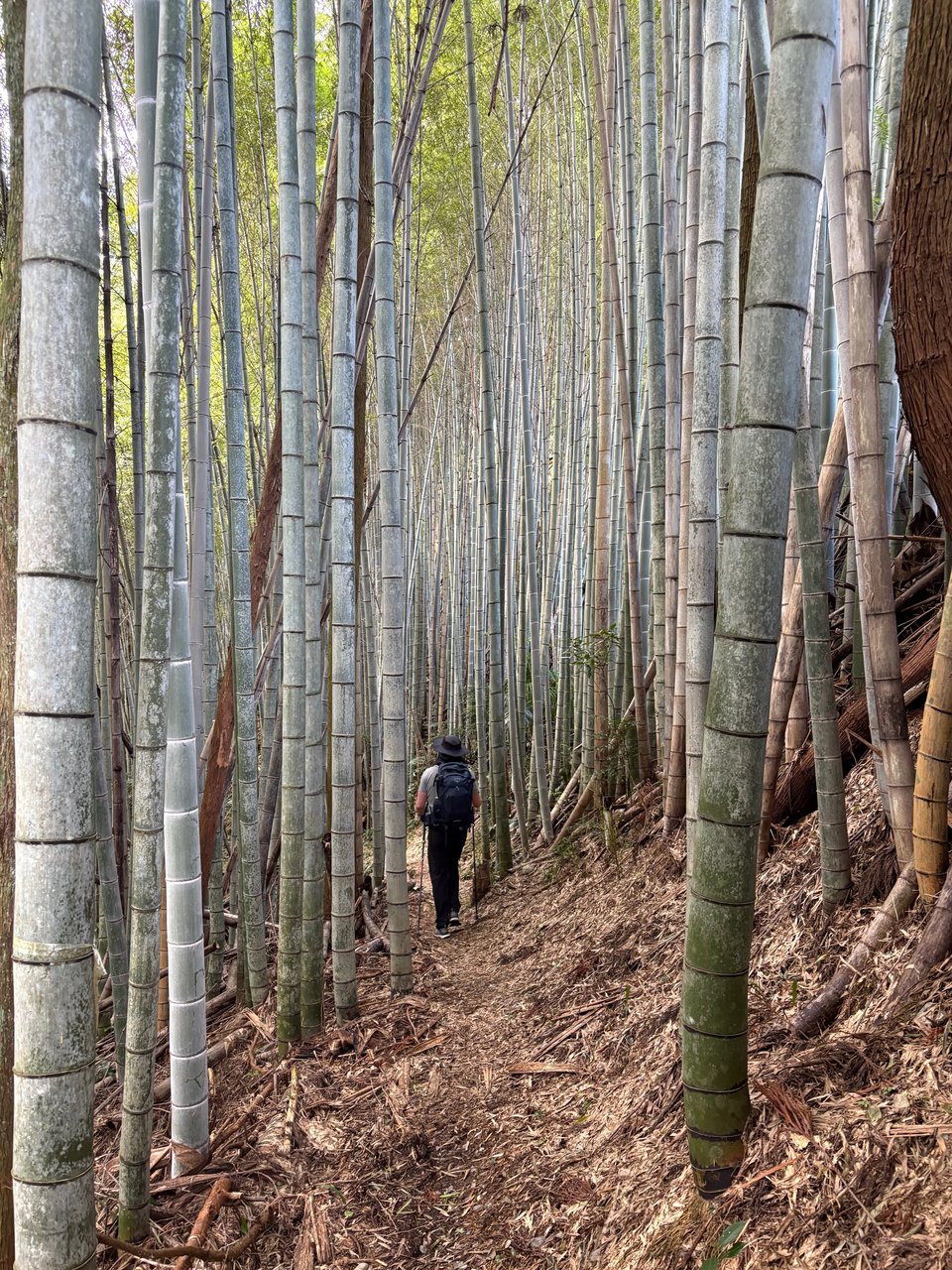
It’s not that anything Drew wrote was inaccurate in any way, and yet, by extracting a single thread, the randomness of life got collapsed down a little. No need for score settling at least; Drew has been scrupulously fair, tactfully not mentioning the times I led us astray, underestimated distances, or somehow neglected to account for elevation changes in addition to mileage when planning the route.
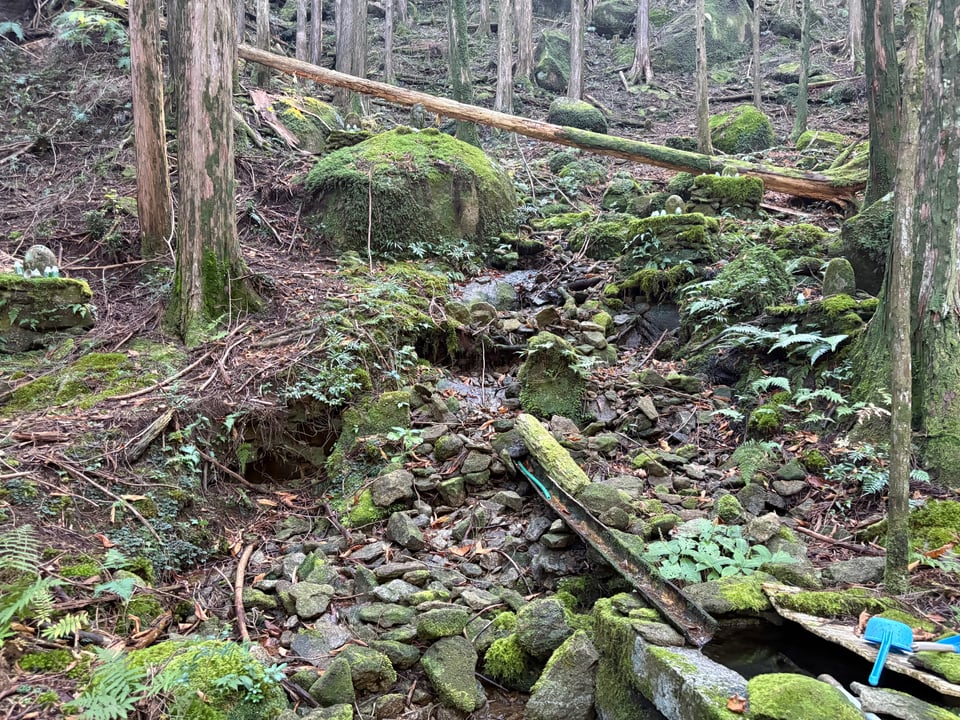
I gave up non-required writing in elementary school, after it went from something done for sheer fun and joy to something done to please others and gain approval. That’s probably also where I started trying so hard to manage other people’s thoughts and impressions of me. And because that’s so exhausting—not to mention impossible—to do, it was easiest just to take up as little space as possible. The less I put out there, the less opportunity there was for people to form any impression of me, much less a negative one. And now: the growing realization that after wearing a mask for so long, I have no idea what’s actually underneath. So what’s it like to start taking it off just a little, and letting myself be seen?
One of the most interesting exercises from Master Class was the opportunity to introduce ourselves from three perspectives: from our head, our heart, and finally our gut. So who am I? I’m a 44-year-old, white, straight-ish, married, mother-of-two-children, and satellite engineer living in Austin, Texas. Or at least that’s the conventional head introduction—which also feels wholly insufficient, like collapsing an N-dimensional reality down to 2 so it can fit on the page. As I feel those conventional identity markers loosen their hold, I’m still figuring out what’s underneath, what comes from my heart and my gut.
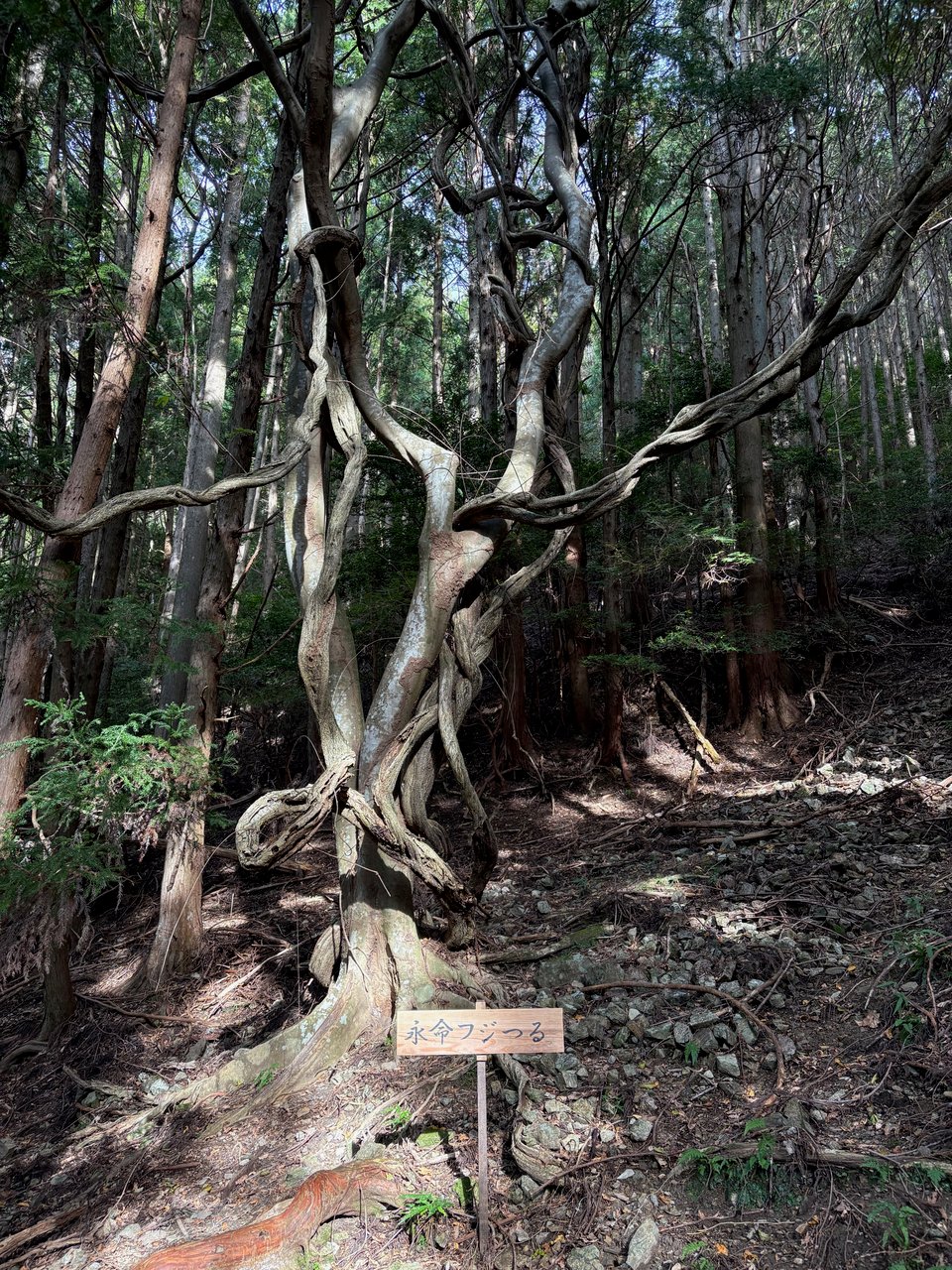
The last time I had really taken the time to do something big like this for myself—just because I wanted to—was taking a year off work in 2012. That year began with hiking the John Muir Trail in California from Yosemite down to Mt. Whitney with my friend Clare. It continued with solo travel in Peru, Bolivia, India, and Japan. And it ended in getting married and starting a family. Then, somehow, a decade passed in the blink of an eye, and the expansiveness of possibilities from that year had constricted down again. I was content with my job and my family, but there wasn’t much passion and excitement left. I had become very good at managing my life—and as I’ve come to learn—the problem with managing your life is that you end up with a life that has to be managed.
Joining Master Class in June opened up a world of connection that I hadn’t even known was possible. I had always wanted to do a pilgrimage trail in Japan, so when Drew mentioned his plans, I screwed up the courage to ask him if I could accompany him. Master Class creates a weird kind of intimacy where you end up knowing all about the voices in your partner’s head and how they judge themselves, but nothing at all about their conventional lives, like whether or not they drink coffee, or what kind of music they like. So it was a bit of a gamble to suggest spending 10 days together on a strenuous hike when we hadn’t even met in person yet. But once he enthusiastically agreed to my tentative suggestion to get up at 5 am on our first morning in order to go see the sunrise on the beach 8 km away, I knew it was going to be OK.
Traveling together ended up being much easier than I had any right to expect. By the end of the first day, my nervousness had dissipated, my the end of the third day I felt comfortable, by the end of the 5th day I had stopped trying to impress him, and by the end of the 8th day I had stopped trying to not disimpress him. By day 10 we were all too familiar with the vagaries of each other’s digestive systems, and I was learning to swear as prolifically as an Australian (not really, not even close).
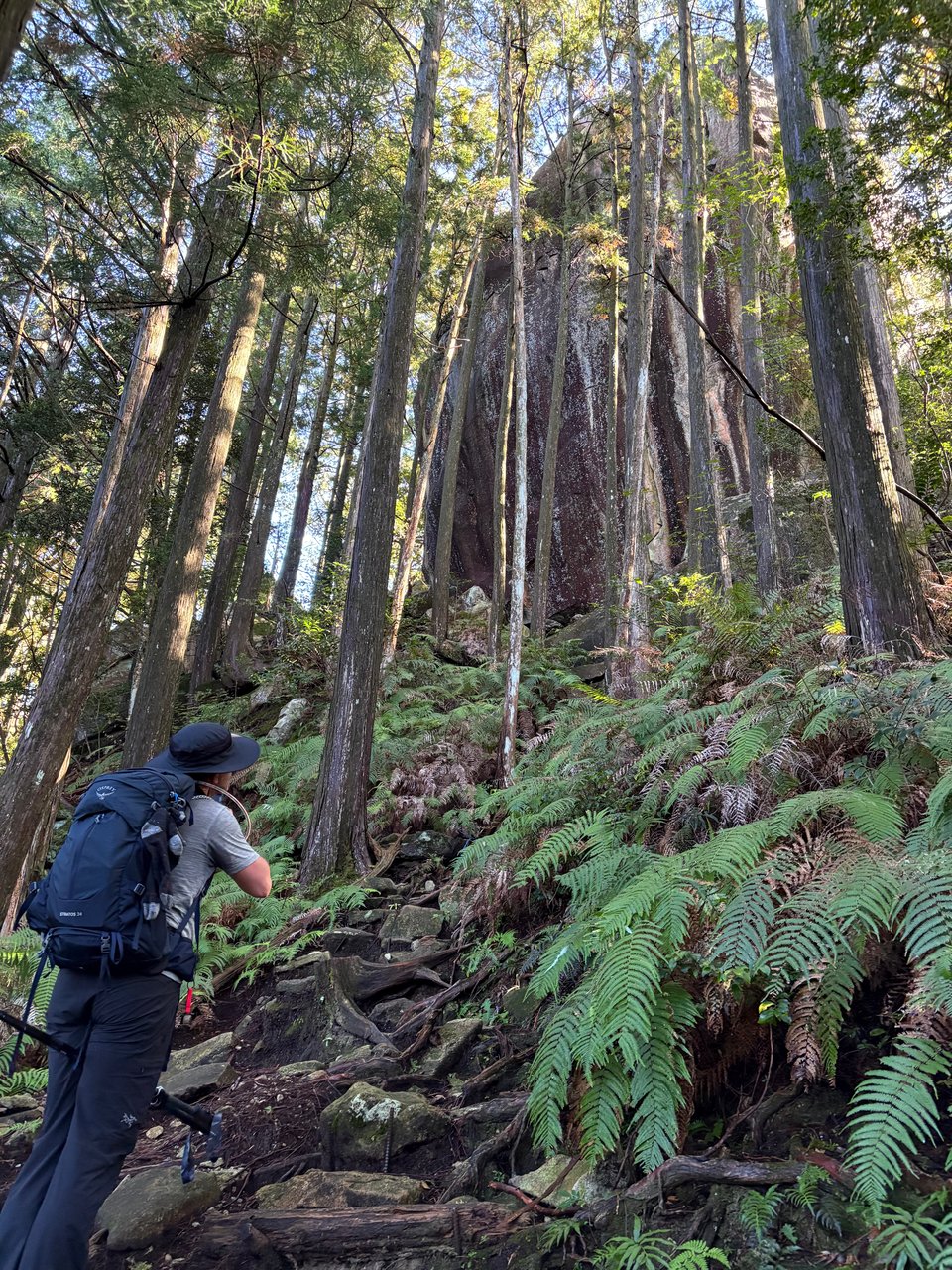
Drew wrote already about some of the more transformative conversations and experiences we had, but one of the things that continues to strike me is the breadth—everything from jobs, money, relationships, parenting, to love, gods, and emptiness. One of the things I most appreciate is how little need there is to distinguish between “low” and “high”. We’d go from evocatively filthy Australian turns-of-phrase to transcendent god talk in no time flat, and without feeling like there needed to be a distinction between these.
Although I’ll admit to a fair amount of resistance to the god talk. When he asked me, out of nowhere, about my relationship to spirituality, I promptly started to squirm and began talking about how absurd it is to think there’s anything out there but what can be seen, touched, sensed, measured. Drew has demonstrated an uncanny ability to pose wholly unexpected questions that shock my system. Then he’ll sit back and look at me with a gentle smile just this side of smug as he watches my system try to fight off the realization that he can clearly see is about to overwhelm me. I like to think my defenses put up a good fight, but then suddenly there I was, sitting in that cafe in Kii-Nagashima and feeling the presence of that net of stars.
The next day at a pavilion staring out at the ocean, both of us alone, yet connected, I sobbed as I felt my heart completely break open. Such a rush of love and exhilaration and the sense of nothingness and everythingness all at once. The feeling of expansiveness and completely open possibility. And the realization that all of the things we had talked about previously didn’t seem as relevant any more. Not because they weren’t important, but because they no longer felt like problems. There was such a sense of being able to rest and relax and just trust in the love and the peace. And for someone who always wants to figure everything out, the delicious discomfort of resting in the not knowing and the questions instead of trying to categorize and find the answers.
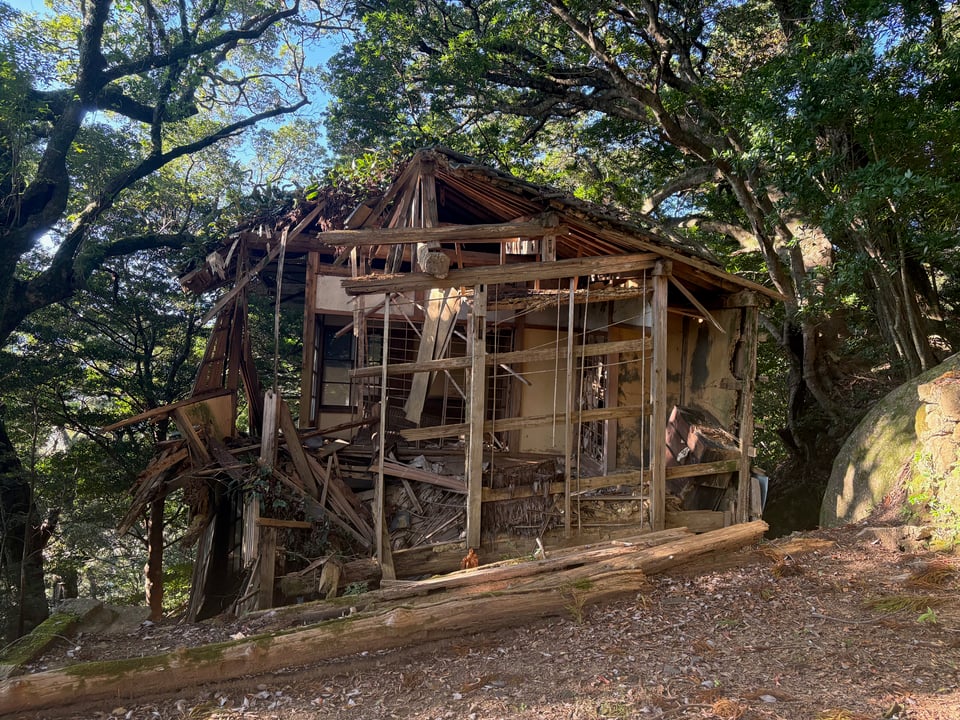
Of course, it’s not always transcendent exhilaration—there’s also learning to welcome all the other parts. By the end we had pushed too hard, were exhausted and ready for some time to ourselves. Realizing on the train ride back to Tokyo, as we tentatively touched upon the ways that we had resented or projected upon each other, that this is a continuous path. And also that there’s no reason to let perfection get in the way of connection.
What made this walk so powerful? The combination of the dislocation, exhaustion, and continual togetherness allowed each of us to start experimenting with showing our less-than-perfect-selves without encountering judgment or rejection. The questions prompted insights to move from the head down to become embodied realizations. Also the simple pleasure of sharing enthusiasms and passions: I got to learn about design theory, cars, photography, and deep observation; Drew got to listen to me geek out about languages, electromagnetic fields, field programmable gate arrays, and my unaccountable joy at hiking through tunnels.
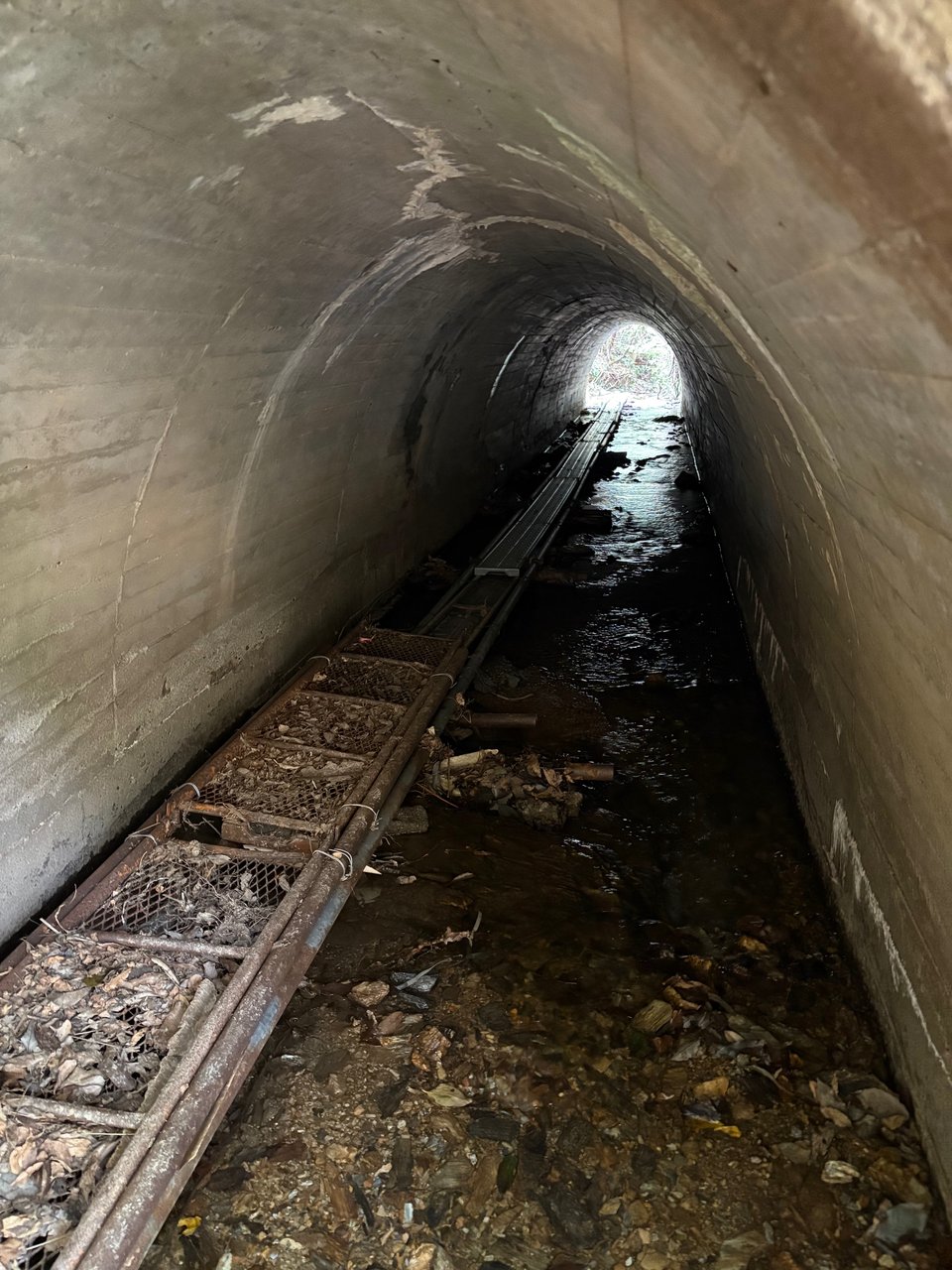
And both of us got to take delight in all of the connections with the people we met along the way. I was surprised by how little trafficked this route was, but it made for a very welcoming experience. The way that everyone would return a friendly ohayou, the way that literally everyone would warn us about the bears, the way the octogenarians would assume that we’d eventually understand them if they just kept repeating themselves, the way that it quickly became clear that if we ever needed anything at all—a ride, water, an emergency toilet—all we had to do is ask and it would be freely given without any thought of return. By the last day of our hike, everyone we met would encourage us that we were almost there: chotto dake desu, ganbatte!
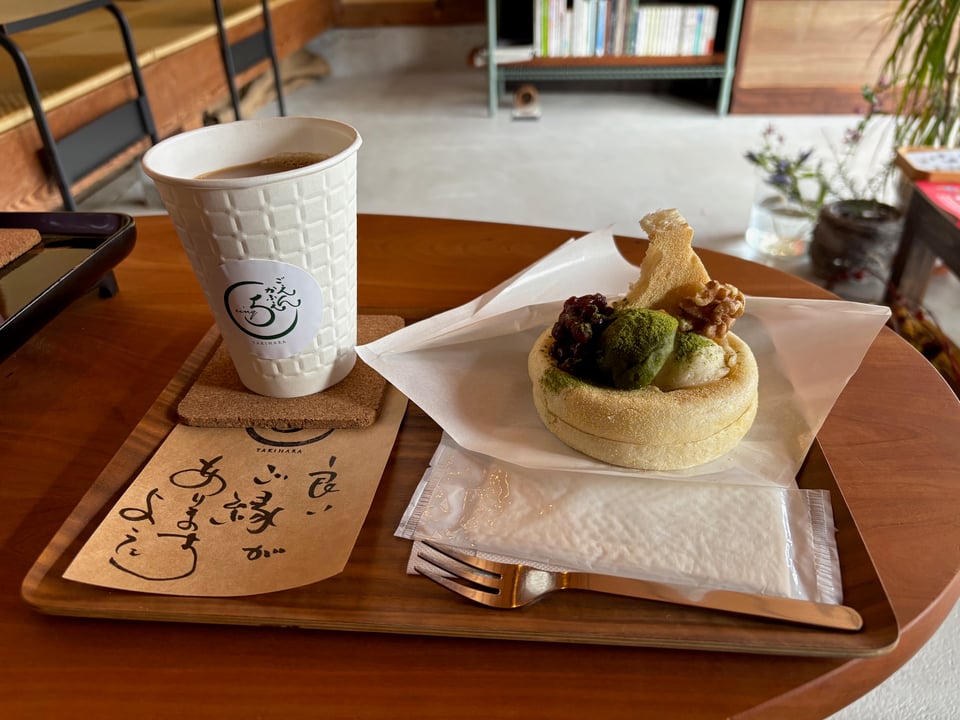
During the last few days, the word faith kept coming up in our conversations, making me bristle. The idea of a “plan” or that “everything will work out” has always seemed like such a cop-out. And yet, on Saturday, wandering around Tokyo, feeling all the heartbreak, the word that arose was grace. That there’s nothing I need to do to be worthy. And that the net of stars is always out there—in love, in light, in key—whether I’m aware of it or not.
As I head back to the US, I find myself afraid that nothing will change, and simultaneously that everything will change. But when I feel into myself, it’s easy to lean into the stars and have faith that things will continue to unfold and all I have to do is just not get in the way.
